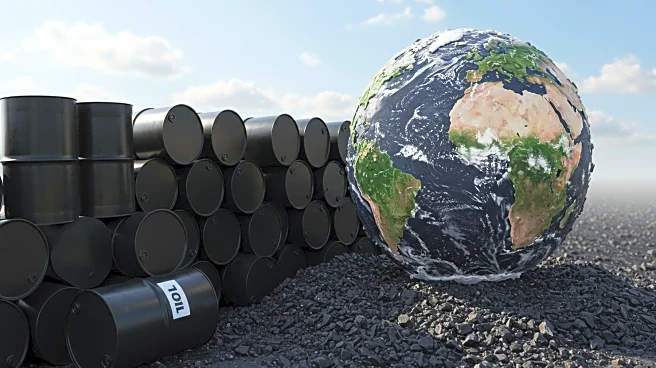What's Happening?
Recent UN talks aimed at establishing a legally binding agreement to tackle plastic pollution have collapsed. The negotiations in Geneva were hindered by petrostates, including Saudi Arabia and Kuwait, who insisted on limiting action to waste management rather than addressing production and toxic chemical use. The United States also supported voluntary measures, which were deemed insufficient by delegates from high ambition states such as the EU, Britain, Canada, and many global south countries. The failure to reach consensus has disappointed many, as plastic production is expected to triple within 35 years, exacerbating environmental and health issues.
Why It's Important?
The collapse of these talks is significant as it highlights the ongoing struggle to address plastic pollution, a major environmental and health concern. Microplastics have been linked to various health issues, including increased risks of miscarriage, birth defects, and cancer. The inability to reach a binding agreement underscores the influence of entrenched industry interests and the challenges of multilateral diplomacy. This setback may delay necessary actions to curb plastic production and usage, impacting global efforts to protect human and planetary health.
What's Next?
Despite the setback, campaigners and high ambition states are expected to continue pushing for change, potentially through different UN forums or unilateral actions. Countries like Colombia are already taking steps to reduce plastic usage. There is hope that China, as a major plastic producer, could play a pivotal role in future negotiations. The presence of industry lobbyists in Geneva indicates that producers are aware of the growing demand for change, suggesting that continued pressure could eventually lead to progress.
Beyond the Headlines
The failure of the talks reflects broader issues in global diplomacy and multilateralism, where consensus is often difficult to achieve. The entrenched interests of plastic producers highlight the economic challenges in transitioning to sustainable practices. This situation may prompt countries to explore alternative avenues for environmental action, emphasizing the need for innovative solutions and leadership in tackling global pollution.









